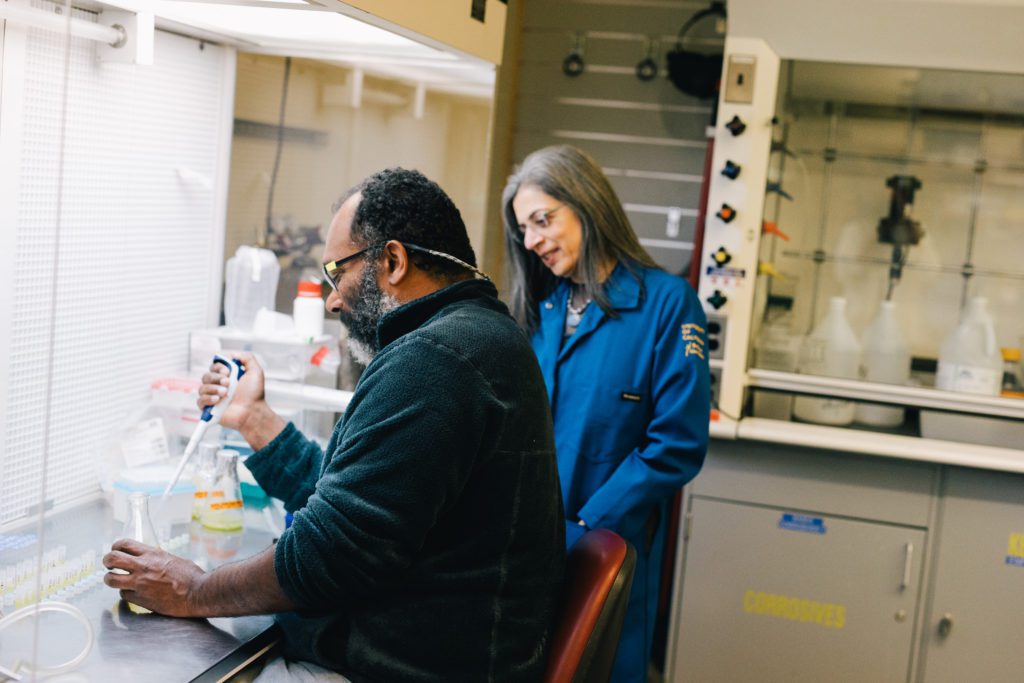Teams led by researchers from UC Berkeley, the California Institute for Quantitative Biosciences (QB3), and Berkeley Lab have received a combined $11.6 million from the U.S. Department of Energy (DOE) to develop biofuel and bioproducts from a photosynthetic micro-alga. The funding is part of $178 million in DOE awards granted to 37 projects that will develop new technologies to engineer plants and microbes into bioenergy feedstocks and improve carbon storage.
The team will help lead efforts to identify new sources of renewable energy and devise bio-based strategies to produce chemicals currently obtained from petroleum. Their work could potentially reduce dependence on fossil fuels and improve energy security while advancing efforts to reach a net-zero carbon economy by 2050.
UC Berkeley scientists involved in the project include Sabeeha Merchant, a professor in the Departments of Plant and Microbial Biology (PMB) and Molecular and Cell Biology, PMB professor Krishna Niyogi, PMB research biologist Melissa Roth, and Jeff Moseley, a research scientist at QB3.

Energy Secretary Jennifer Granholm, a former faculty member at the Goldman School of Public Policy, said the projects will prevent carbon emissions from entering the atmosphere by “producing cheaper energy from organic materials like plants, food, and waste.” She added that the research projects will “advance the boundaries of biotechnology and support the emergence of a thriving U.S. bioeconomy that creates good-paying jobs and helps us meet our climate goals.”
According to Merchant, the project aims to transform Auxenochlorella protothecoides, a photosynthetic micro-alga, into an essential component of a sustainable bioeconomy by harnessing its potential to capture and convert carbon dioxide into biofuels and bioproducts. The micro-alga’s naturally high capacity for lipid biosynthesis and availability of genome engineering tools make it a promising prototype platform for biomanufacturing.
The micro-alga will be modified to accumulate a high proportion of cyclopropane fatty acids, a particular type of lipid that can be converted into jet fuel components, while increasing overall oil production. The research team will also attempt to develop strains with increased photosynthetic capacity and carbon dioxide capture; enhanced resistance to light stress; and improved tolerance for low levels of copper, an essential micronutrient for photosynthesis.
“Ultimately, this research will generate genome-engineered strains that efficiently generate biofuel precursors from sunlight while sequestering atmospheric carbon dioxide,” Merchant said.
Additional project members include Trent Northen, Crysten Blaby-Haas, and Setsuko Wakao of Lawrence Berkeley National Laboratory; Mary Lipton of Pacific Northwest National Laboratory in Washington; and Nanette Boyle of Colorado School of Mines.
More information and a full list of projects can be found on the DOE website. Read this story on the Rausser College of Natural Resources website.